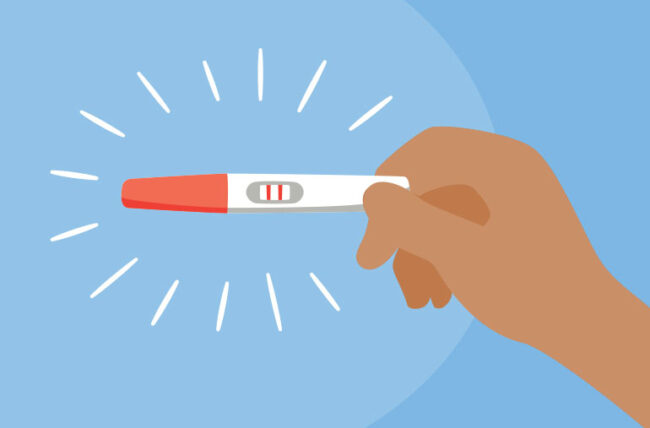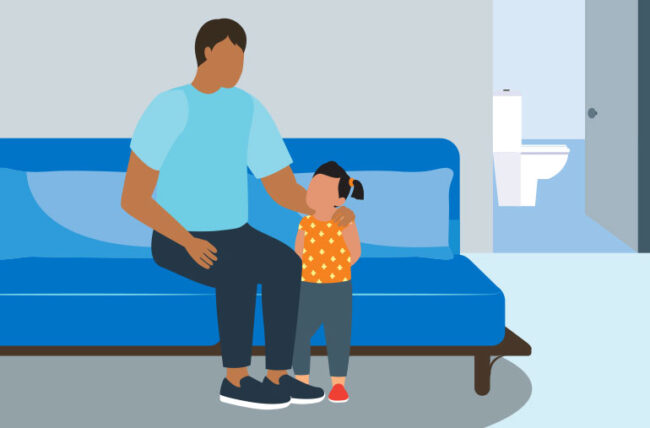Recently, you’ve been crushing. You are exercising more and for longer than you ever have before. And now, you can fit into thedress. Your high-school reunion will be legendary.
You’re period has gone beyond.
You shouldn’t ignore a period that has stopped. The technical term is ” Amenorrhea.”
Weight loss is one of the most common causes of amenorrhea. We spoke to an endocrinologist Vinni M. Makin, MD about this. It’s possible that your period stopped because you are exercising too much or eating too little.
Weight loss and menstrual cycles: Can they be affected by each other?
The short answer is: yes, weight loss caused by a restrictive diet or excessive exercise — or even a combination — can cause you to miss your period.
The longer answer is: Weight loss can be contextual. It’s important that you consider the reasonssomeone is losing weight, before assuming this is why their period has stopped.
When we talk about weight loss, Dr. Makin says that if someone is trying to lose even if they are already at a healthy body weight — perhaps because of an underlying body dysmorphic disorder- this can have an impact on their menstrual cycles either by making periods irregular or stopping them altogether.
What makes this subject complicated? In some cases, people lose their period due to obesity or overweight. can restarttheir cycle for those who lose 5-10 pounds. Weight loss may cause period loss but can also help you have a more regular cycle, depending on how healthy you are.
Why does it happen?
Why does losing weight make your period disappear?
“When you undergo these types of physical changes, your body interprets them as stress,” says Dr. Makin.
She explains that This stress causes a flight-or-fight response. Your body is conserving its energy. Your body will stop your menstrual period and decrease your hormonal production to conserve energy.
You’ve probably guessed that weight loss isn’t the only stress that can trigger this kind of physiological reaction. This can happen during times of extreme emotional stress. Dr. Makin says, “We’ve seen it even after major illnesses or surgery.”
Diagnose exclusion
Over-exercising or restrictive dieting is what doctors call “diagnosis of exclusion” when they are trying to determine why you haven’t been getting your period. “It is important that other disorders are ruled out before,” Dr. Makin says.
The most important thing to do on your diagnostic checklist is make sure you’re not pregnant. To be certain, you should perform a pregnancy test. The only exception to this is if you’re not sexually active.
After you have confirmed that you are not pregnant, you should look into conditions which could cause amenorrhea. These include polycystic Ovarian Syndrome, Cushing Syndrome, overactive or underactive thyroid, or celiac. It may also be important to screen for testosterone-producing tumors, depending on when the symptoms started and their severity.
“There must be a physical examination, a medical history evaluation, laboratory work, and possibly even imaging before we can say that there isn’t a cure per se. “This is caused by lifestyle modifications,” Dr. Makin states.
Exercise
Exercise does not cause amenorrhea in the same way as weight loss. Dr. Makin explains that there are many different factors, including psychological, physiological and environmental ones, which can affect your menstrual cycles.
We don’t realize that menstrual disorders — such as bleeding without ovulating or losing a period (an anovulatory phase — are fairly common.
In 1983, a study found that women who ran more than 50 miles per week were more likely to suffer from amenorrhea.
Amenorrhea Myths: Busting the Myths
Amenorrhea is a subject that has been the topic of two myths for many years. Losing your period is an indication that you are physically fit. Second, losing your period is a sign that you have eating disorder.
Myth #1: If you don’t have a period, then you are more athletic.
It is not unusual to hear about athletes who have lost their period. There’s a common misconception that losing your periods is a sign of extreme physical fitness.
In reality, the truth is quite opposite.
Dr. Makin says: “When someone loses her period due to exercise or diet problems, it doesn’t mean that they are physically fit. This is a sign of nutritional deficiency. They don’t produce enough hormones because they lack fat.
She says: “Physical Fitness is not defined by your weight or the type of exercise or amount you do.”
Myth #2: You have an eating disorder if you don’t get your period.
There are a number ofreasons a woman’s period may stop. disordered eating can be one reason, but it is only of many.
Amenorrhea can be caused by a number of factors, including pregnancy, chronic illness, and long-term stress. Amenorrhea can also be a sign of other medical conditions, such as fragile-X syndrome and cystic Fibrosis.
You can also have an unhealthy relationship with food, but it may not cause amenorrhea. Your period does not indicate that you are getting enough nutrition.
Can you get your period back?
It can be frightening to lose your period, especially if it’s a sign that you plan on getting pregnant in the near future. Can you get your period back after you lose it? Yes, but you’ll need to make significant lifestyle changes.
Dr. Makin says, “You should both reduce your exercise and increase the caloric intake.” You should try to reach the same weight that you had when your period was due every month. Some people have to gain weight in order to restart their cycle.
It’s not easy to change your body, especially if it’s a problem you struggle with. It’s crucial to consult a health care provider. They can determine the safest and healthiest way to reach your weight goal and provide you with the resources needed to overcome obstacles.
Dr. Makin says that people can be hesitant to change their lifestyle. They may need help from a team of experts, such as a psychologist or primary care physician, a pediatrician or dietician, and an exercise physiologist.
It’s not a simple equation to determine how fast you can get your period after it has been lost. She says that it depends on what kind of health plan you follow and how quickly you make lifestyle changes.
How can you get back your period ?
Amenorrhea is not the same for all women.
It is technically possible to induce a period using birth-control pills, or progesterone patches and estrogen pills, but this does not negate any adverse effects that you may experience from an absence period. It will not restart your . It won’t help people who want to get pregnant.”
You can’t start your period again in a healthy, natural way without gaining some weight or changing your workout routine.
When should you be worried?
The circumstances of your period loss and who you are will determine whether you need to be concerned.
Dr. Makin says, “If you are sexually active, you should check for pregnancy , even if it is not something you think you might be.” Even women with irregular periods may be ovulating. You can’t just assume that you won’t get pregnant. “You can get pregnant.”
You should see a doctor if you’re younger than 45, haven’t had your period in three months, and confirm that you’re not pregnant. This is true regardless of recent changes to your diet, weight or exercise routine.
You may be going through perimenopause if you are over 45. You should still consult your healthcare provider to make sure you understand what is happening to your body and to get advice on how to manage any symptoms.
Remember that it may take up to two years for your cycle to become regular after menarche. It doesn’t necessarily mean that you should ignore an irregular period. Itmeans that you should expect some irregularity. You may be advised to take medication or make lifestyle changes in order to stabilize your cycle.
Bottom line
It’s not surprising that some women or people who were born female (AFAB) aren’t thrilled about their period. Inconvenient, and in some cases downright unpleasant, getting your period can be a hassle. You’ve probably already wished for your period to disappear, whether you were trying to get pregnant or simply wanted to go on avacation without worrying about tampons. What if your period disappears suddenly? That’s a big red (or maybe not so red) flag.
Take a pregnancy check if your period has stopped or is irregular. This applies to anyone who is sexually active, no matter how long ago you last bled.
Next, you should consult a physician. It is unhealthy to miss a period more than three consecutive months, regardless of weight or fitness. If you have lost your period due to excessive exercise or restrictive eating, you will not be able to get it back until you correct your nutritional deficiencies.
You are not defined by your weight or athleticism. They shouldn’t be more important than your health or well-being. A healthy you is the best version of yourself.






















